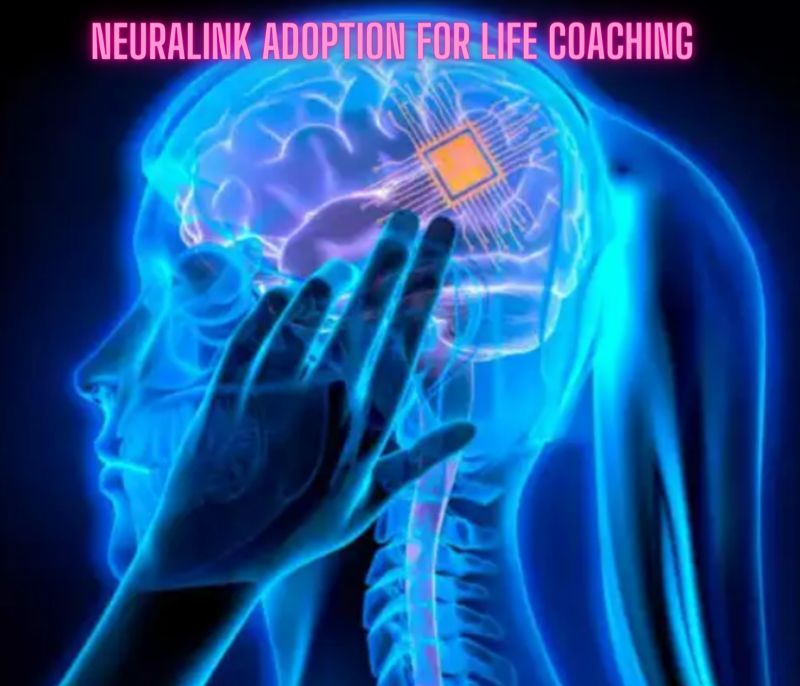In a groundbreaking development in the field of neurotechnology, Elon Musk announced couple of days ago that the first human recipient has received an implant from his brain-computer interface venture , 🅽🅴🆄🆁🅰🅻🅸🅽🅺
Neuralink’s device is designed for implantation in the skull, featuring ultra-thin wires directly connected to the brain. The company aims to target the brain region controlling movement intention, initially enabling individuals to control computers using their thoughts alone.
𝐍𝐞𝐮𝐫𝐚𝐥 𝐄𝐧𝐡𝐚𝐧𝐜𝐞𝐦𝐞𝐧𝐭 𝐢𝐧 𝐋𝐢𝐟𝐞 𝐂𝐨𝐚𝐜𝐡𝐢𝐧𝐠 : Neuralink’s primary promise lies in the augmentation of cognitive functions. Life coaching, centered around personal development and goal achievement, could benefit from targeted enhancements. Imagine personalized brain stimulation protocols to optimize focus, memory retention, and emotional resilience. This could lead to accelerated learning, improved decision-making, and enhanced overall mental well-being.
𝐑𝐞𝐚𝐥-𝐭𝐢𝐦𝐞 𝐌𝐨𝐧𝐢𝐭𝐨𝐫𝐢𝐧𝐠 𝐚𝐧𝐝 𝐅𝐞𝐞𝐝𝐛𝐚𝐜𝐤 : Neuralink’s ability to monitor neural patterns in real-time could revolutionize the feedback loop in Life coaching. Coaches might gain insights into clients’ mental states, allowing for more nuanced and tailored guidance. Understanding cognitive responses and emotional fluctuations could enable coaches to adapt strategies dynamically, fostering a more effective coaching relationship.
𝐄𝐭𝐡𝐢𝐜𝐚𝐥 𝐂𝐨𝐧𝐬𝐢𝐝𝐞𝐫𝐚𝐭𝐢𝐨𝐧𝐬 : While the potential benefits are compelling, the integration of Neuralink in Life coaching raises ethical concerns. Informed consent becomes paramount when dealing with invasive technologies that directly interact with the brain. Safeguarding privacy and ensuring data security are critical to prevent misuse or unauthorized access to sensitive neural information.
𝐂𝐥𝐢𝐞𝐧𝐭 𝐄𝐦𝐩𝐨𝐰𝐞𝐫𝐦𝐞𝐧𝐭 𝐚𝐧𝐝 𝐀𝐮𝐭𝐨𝐧𝐨𝐦𝐲: Neuralink’s integration should prioritize empowering clients rather than replacing their agency. Coaches must strike a delicate balance, ensuring that the technology serves as a tool for personal growth rather than a means of external control. Transparent communication about the technology’s capabilities and limitations is crucial to maintaining trust.
𝐂𝐨𝐧𝐜𝐥𝐮𝐬𝐢𝐨𝐧 :
The potential integration of Neuralink in Life coaching represents a fascinating frontier in human development.
While the benefits are alluring, it is crucial to approach this intersection with caution, prioritizing ethical considerations, client autonomy, and privacy.
Education and demystification efforts are essential to address concerns and foster acceptance.
Striking the right balance between technological innovation and human-centric values will be key to unlocking the full potential of Neuralink in the realm of Life coaching.
Need to talk more. Let’s connect.

